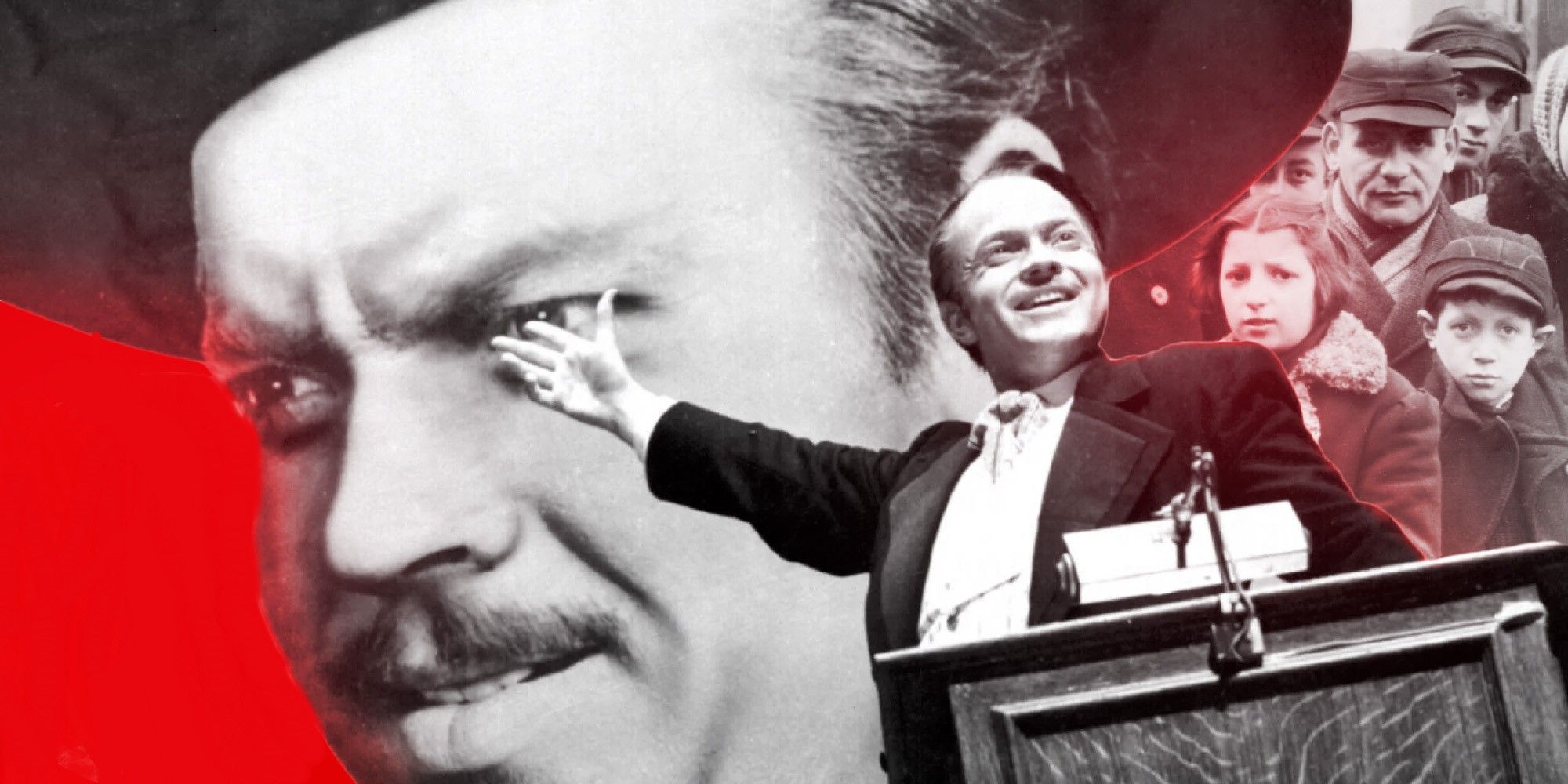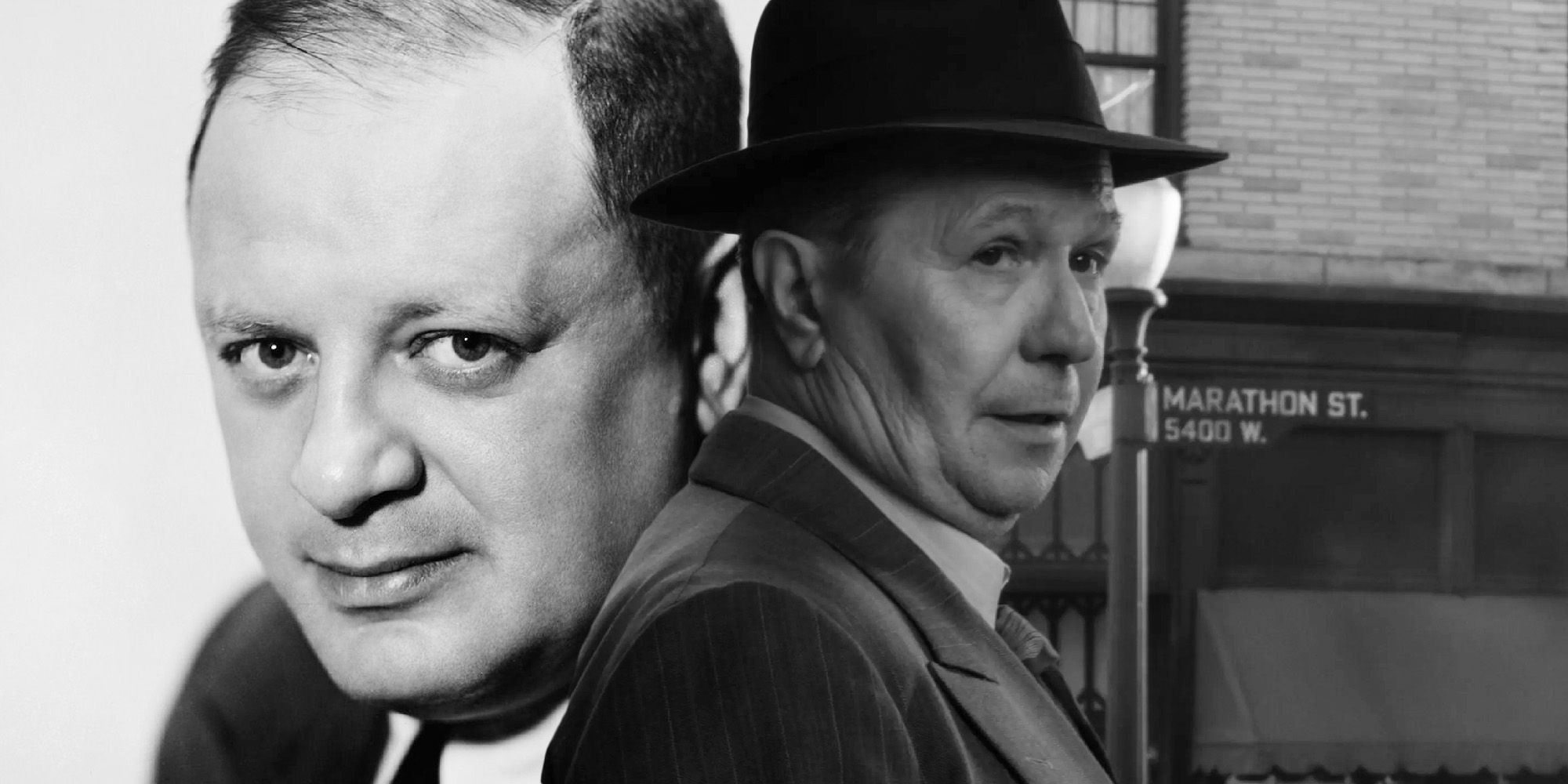
Did Herman J. Mankiewicz really save an entire village of Jewish people from Nazi Germany? According to a character in Mank, the screenwriter helped over 100 individuals emigrate to the United States, where he sponsored them legally and financially. In reality, Mankiewicz did indeed help fellow Jews in significant ways - however, David Fincher's Netflix film embellishes the facts for dramatic purposes.
Mankiewicz was the son of German-Jewish immigrants who left Hamburg for New York City in 1892. By 1933 - the year Adolf Hitler became Chancellor of Germany - the screenwriter was a Hollywood veteran who wrote an un-produced script entitled "The Mad Dog of Europe" that foreshadowed a genocide committed by "Adolf Mitler." In Mank, the storyline centers on Mankiewicz's creative process while writing the screenplay for Citizen Kane during the early months of 1940. Gary Oldman stars in the title role.
Mank begins with the protagonist (or antihero, depending on perspective) recovering from a car accident in Victorville, California. Mankiewicz initially promises to stay sober while writing the Citizen Kane screenplay, but eventually arranges for a special delivery of alcohol that will replace the contents of "Mickey Finns." The writer's secretary, Rita Alexander (Lily Collins), opposes the covert operation, however, the housekeeper, Fräulein Frieda (Monika Gossmann), agrees to help Mank - and for a good reason. Fräulein Frieda politely informs Rita that "Herr Mank" sponsored her family's entry to America. She goes on to explain that the screenwriter also assisted her entire village of over 100 people, and references the aforementioned Hitler-themed screenplay that scared off producers. The Mank sequence establishes Mankiewicz as a sympathetic figure, even if it's only partially accurate.

According to Sydney Ladensohn Stern (via Forward) - the author of The Brothers Mankiewicz: Hope, Heartbreak, and Hollywood Classics - Mankiewicz didn't actually have a housekeeper named Fräulein Frieda. So, the story about him saving her entire village is not historically accurate. However, it's well documented that Mankiewicz and his family did support Jews who were looking to escape Germany for a better life in America. In the book Mank: The Wit, World and Life of Herman Mankiewicz, author Richard Meryman's words (via Newsweek) parallel those of the fictional Fräulein Frieda in Fincher's Netflix film:
"Herman became the official sponsor for hundreds of German refugees and took responsibility for total strangers fleeing to America."
In Mank, the subject's Jewish heritage thematically links to his motivations for making fun of William Randolph Hearst (Charles Dance) in the Citizen Kane screenplay. The Netflix film creates an insider vs. outsider dynamic to suggest why the writer used Hearst as the inspiration for Charles Foster Kane - and even implies that "Rosebud" was actually Hearst's nickname for the genitalia of his mistress Marion Davies (Amanda Seyfried) - but the subtext is seemingly rooted in the businessman's racist behavior. Hearst used his newspapers to disparage Mexicans (via Brown University), and he vehemently opposed the rise of Jewish immigrants (via HISTORY) in the Hollywood industry, even though the mogul was indeed close with MGM head Louis B. Mayer, a Jewish man whose father emigrated from Ukraine. With Mank, Fincher includes the Fräulein Frieda story exactly one hour into the film; a narrative anchor that reminds the audience about the subject's humanity.
from ScreenRant - Feed https://ift.tt/36Z8z7X

0 Comments